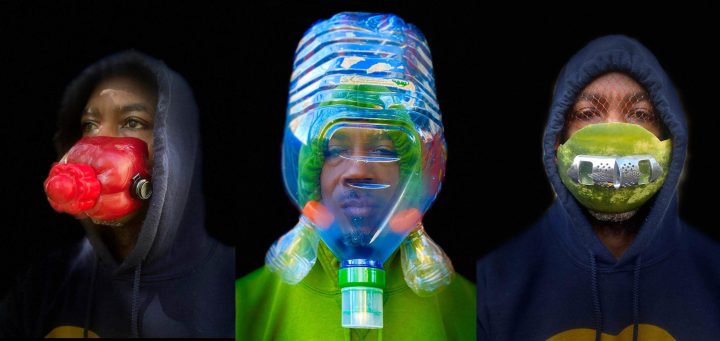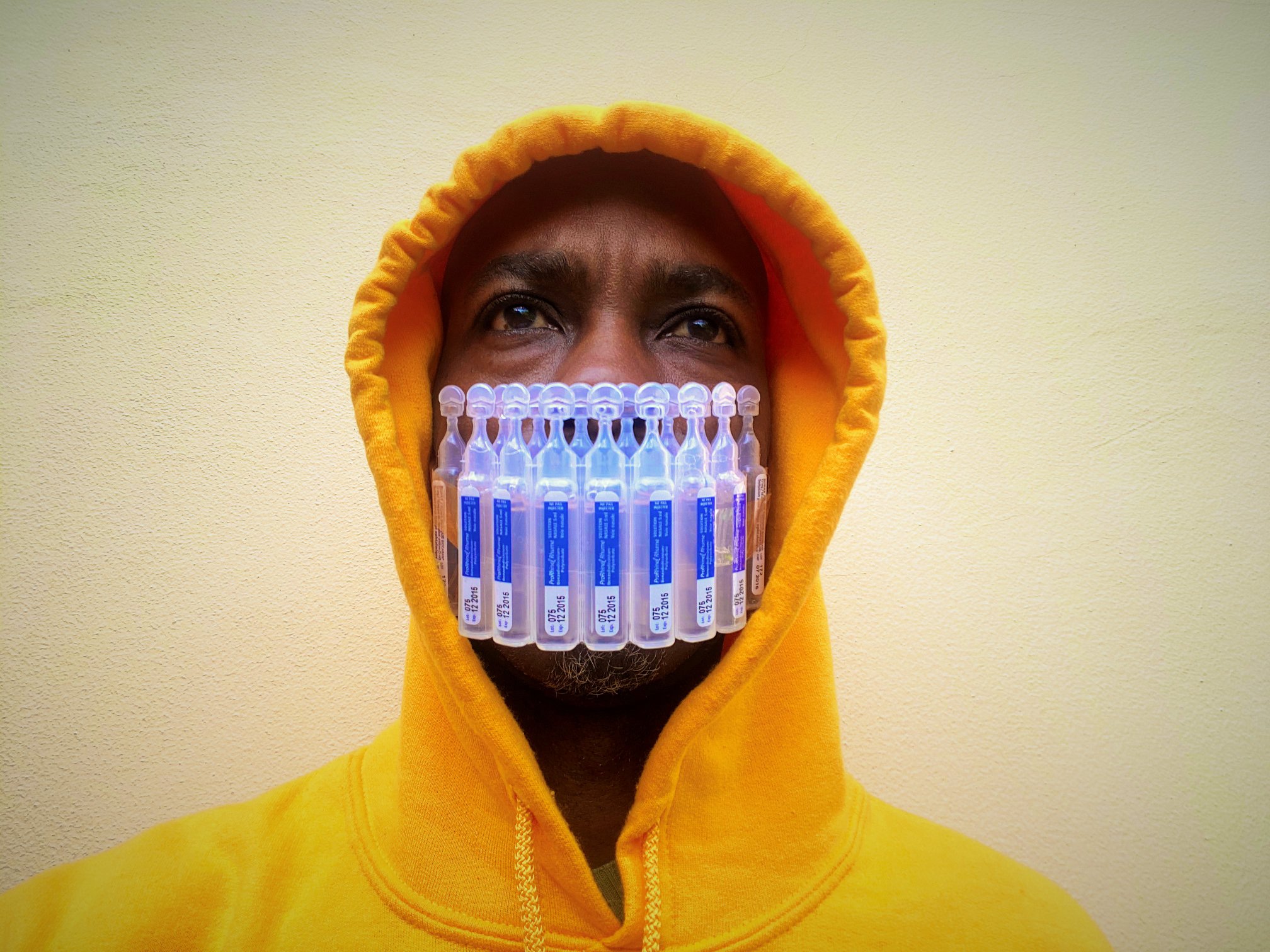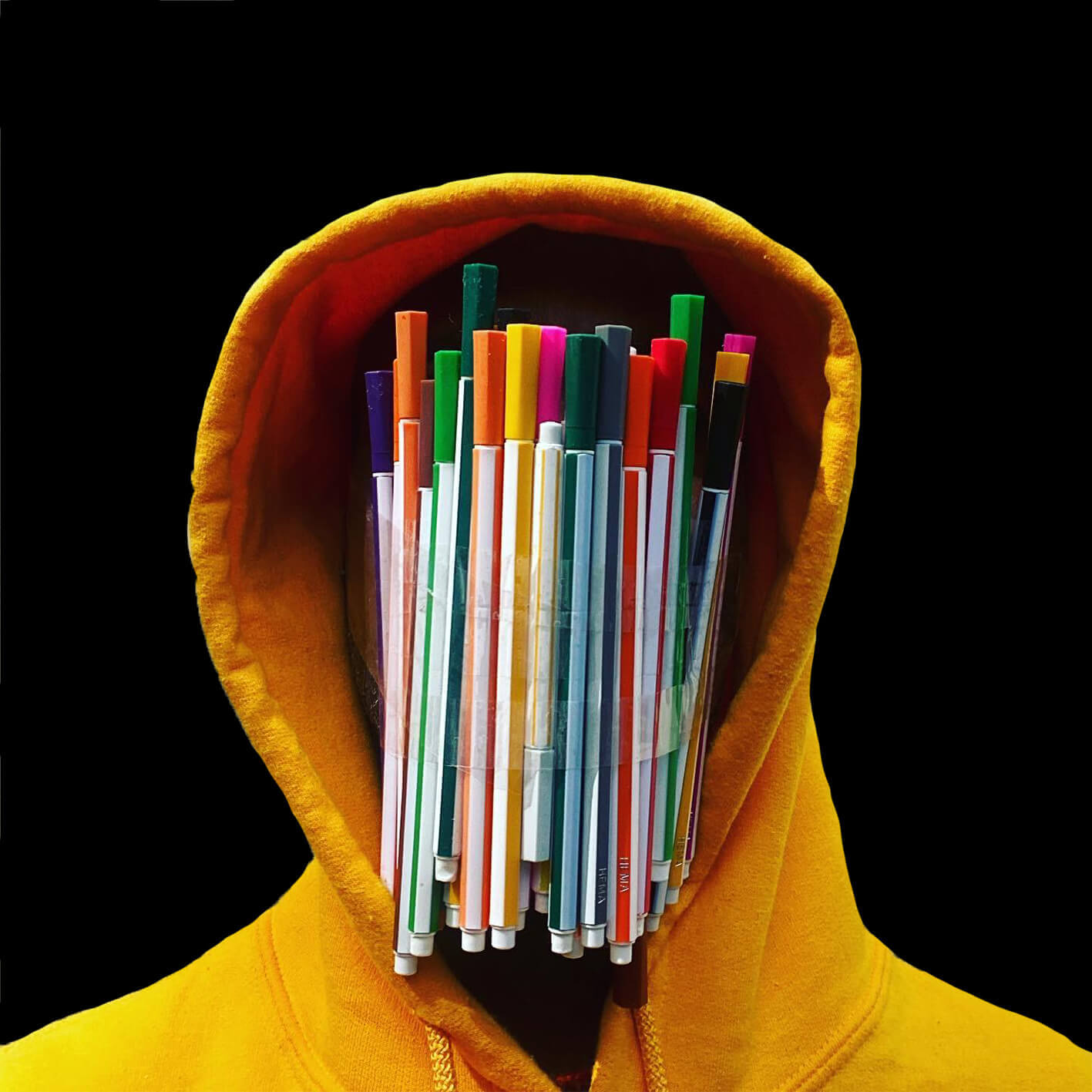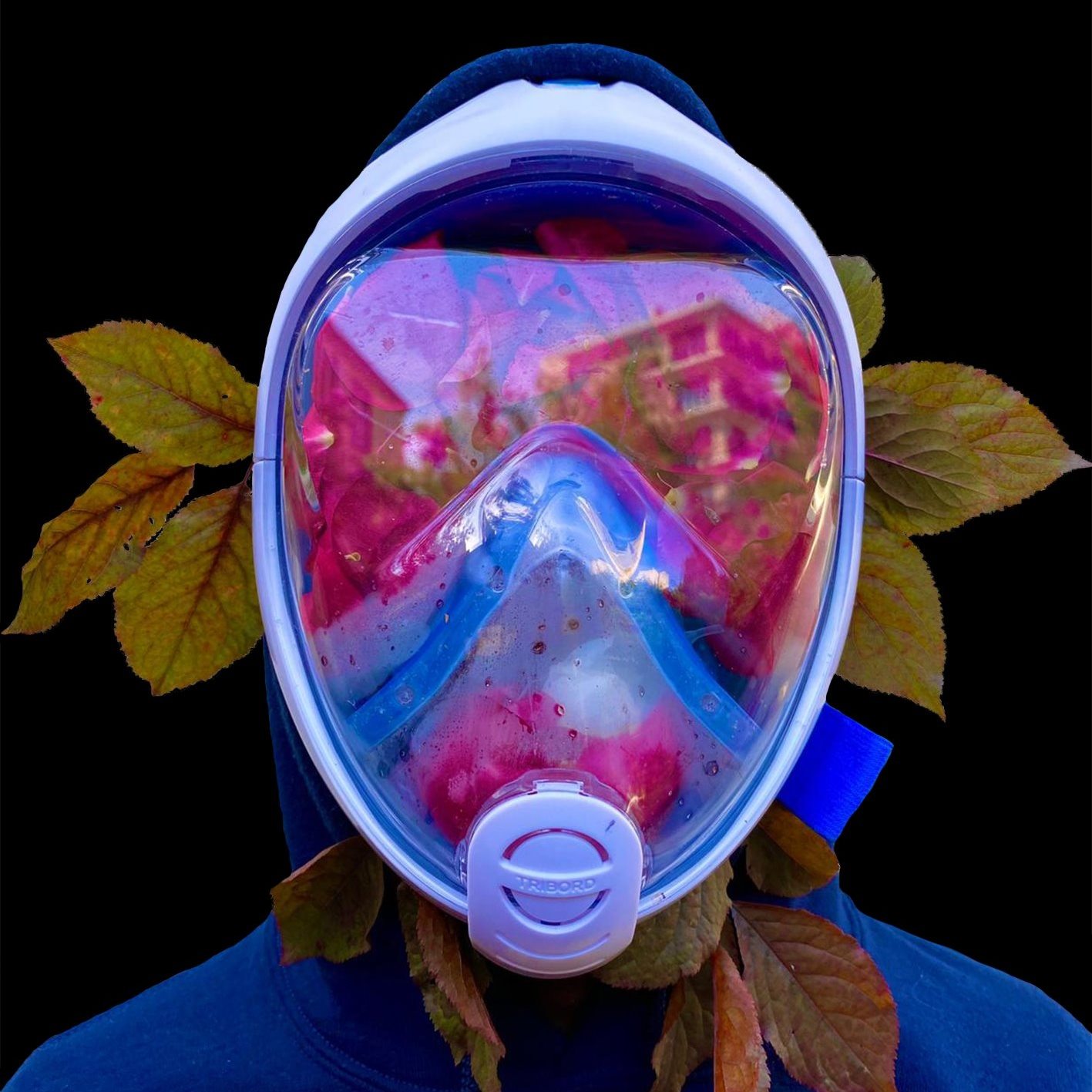MATTERS OF OBSESSION
Corona Curius: Masks as powerful statements on life and art

Cameroon-born nomad and conceptual artist Lamyne M created a Covid-19 face mask every day of France’s initial lockdown implemented in March. The result is a symbolically charged, 55-piece collection of socio-politically provocative art titled Corona Curius.
When French president Emmanuel Macron declared France’s first national lockdown in March, concept artist, creator and wanderer Lamyne Mohamed, also known as Lamyne M, used the Covid-19 face mask to address the impact of the pandemic, raising crucial philosophical questions about what it signified and its impact on geopolitical and social global issues like education, climate change and immigration.
“Beyond Covid-19, the mask is also a symbol of the marking of space; the marking of borders, a barrier, a frontier; it could be visible or invisible…
“I knew there were many reasons for me to work on the mask… if anything, to call out this delimitation of ‘breathing space’”.
This idea, that the pandemic is a stark reminder of our humanity’s vulnerabilities and that the mask is but a warning of what the future could look like, is at the core of Lamyne M’s approach to his practice and the predominance of questioning the world – and politics – around us is to his art.
“It raises many questions: the privatisation of the air we breathe in the future, if it becomes possible; if the wealthiest or those who have the means could commercialise the air we breathe, they could, especially this year with Covid, develop this idea to keep fresh, clean air for the wealthiest and leave polluted air for the poorest.
“Does this shape the future? How could this happen; how will the world move forward? It’s a ‘small’ disease [virus]… that has redefined people’s ‘lifeline’; there will be a ‘before Covid’, ‘during Covid’ and an ‘after Covid’.
“Life will be marked by those three stages that have completely changed [everything]. Now, we cannot limit each other’s breathing air, but maybe one day someone will sell us ‘fresh, clean air’ in oxygen bottles that we would carry like backpacks, as if we were off to school …”
Born in 1977 in northern Cameroon, curiosity and creativity were built into Lamyne M’s bones from an early age.
From the people he meets to the food he eats and the places he has seen, from Africa to Europe, from Asia to Latin America, Lamyne M channels his inspiration into work that explores, questions and processes social issues through art and textiles.
“For me, art is a way of viewing things. It’s a way of making sense of things; of making sense of the world.
“I think I was more or less born an artist because I always wanted to work on personal projects that would modify the way I look at the world… change and adapt the things I saw around me,” he explains.
Lamyne comes from a line of Fulani people or “Peul” – a nomadic pastoral community from West Africa and the Sahel region. The egalitarian social structure and free moving, free thinking philosophy of the Fulani has had a huge influence on Lamyne M’s craft.
Although the artist currently lives in Saint-Denis near Paris, the philosophy behind nomadism – the notion that everything is movement and that attachment should only be to your people and the ones you love – serves as a backbone for his work.
“One isn’t born Fulani or Peul, but one can become it. It’s a philosophy one can have… it’s the great philosophy of nomadism, which means not being attached to anything…
“We leave, we move as we wish to… the speed at which one can leave; the speed at which one can move from one place to another [means] a fastness to adapt and not having any border in one’s head, nor in front of one’s eyes…
“I just want to be a nomad; I want to be someone who isn’t attached to anything but human philosophy, nomadic philosophy. Everywhere I go I should be feeling at home. That’s the Peul philosophy.
“It’s having this mindset of freedom, openness and removing boundaries in one’s head and one’s heart. That’s what being Fulani is for me,” adds Lamyne.
His latest artistic commentary, Corona Curius – deliberately misspelt to highlight the obsession with the virus – has been so carefully orchestrated that not one object is devoid of meaning.
He created one mask after the other from materials and ingredients around him – from pens to flowers and fruit – all 55 pieces are made from everyday items found in Lamyne’s fridge, studio or garden.

“Corona Curius” Courtesy of Lamyne M. under Axis Gallery

“Corona Curius” Courtesy of Lamyne M. under Axis Gallery

“Corona Curius” Courtesy of Lamyne M. under Axis Gallery

“Corona Curius” Courtesy of Lamyne M. under Axis Gallery
In the same spirit, Lamyne used a phone instead of a camera to photograph his masks – a reminder that during lockdown, the only tools he could use were the ones he had around him… his creativity sparking from this very scarcity.
Similarly, the hoodies he wears are, as he explained to New York Axis Gallery art curator, Gary van Wyk, a political statement about France’s attitude towards immigrants.
Each mask is a nod to or a commentary on a social issue he feels needs to be addressed.
From his Nafsy Nafsy mask – which, he explains to van Wyk, speaks to “certain people who don’t have the possibility to eat, or can’t go to school and how there are some families in France that cannot afford to eat because of the effects of the lockdown” – to Le comptable (the accountant), which is a comment on education.
“The mask with the pens speaks to the deprivation of freedom to go to school… the power to write. It is this deprivation of freedom that is fundamental to this mask.”
Another mask is titled La Renaissance (the Rebirth). Each of them is wrapped in powerful statements that leave the viewer with riddles, emotions and hopes.
“We should understand how important life is, how fragile it is… this pandemic showed us that it didn’t have any discrimination; it caught [in its web] the wealthy, poor, short, skinny, big, intellectual, black and white…
“It put us all on the same level. It didn’t need visas or passports to cross borders; it could go in and out how it wanted to; it walked into our houses, it visited the rich and the poor, it moved into cinemas without paying the fee… it showed us our vulnerability,” he said.
And yet the series leaves viewers with hope.
“I believe there will be a rebirth. I think it is a possibility that the next generation will change things. I am very optimistic…
“I envision a multinational generation against animal suffering – a generation who are for the fight against global warming and who will also be interested in changing the politics of the world.
“So I believe in the revolution. It is coming,” says Lamyne M. DM/ML
For more information on Lamyne M., visit his website, Instagram: @lamyne_m



















 Become an Insider
Become an Insider
Comments - Please login in order to comment.